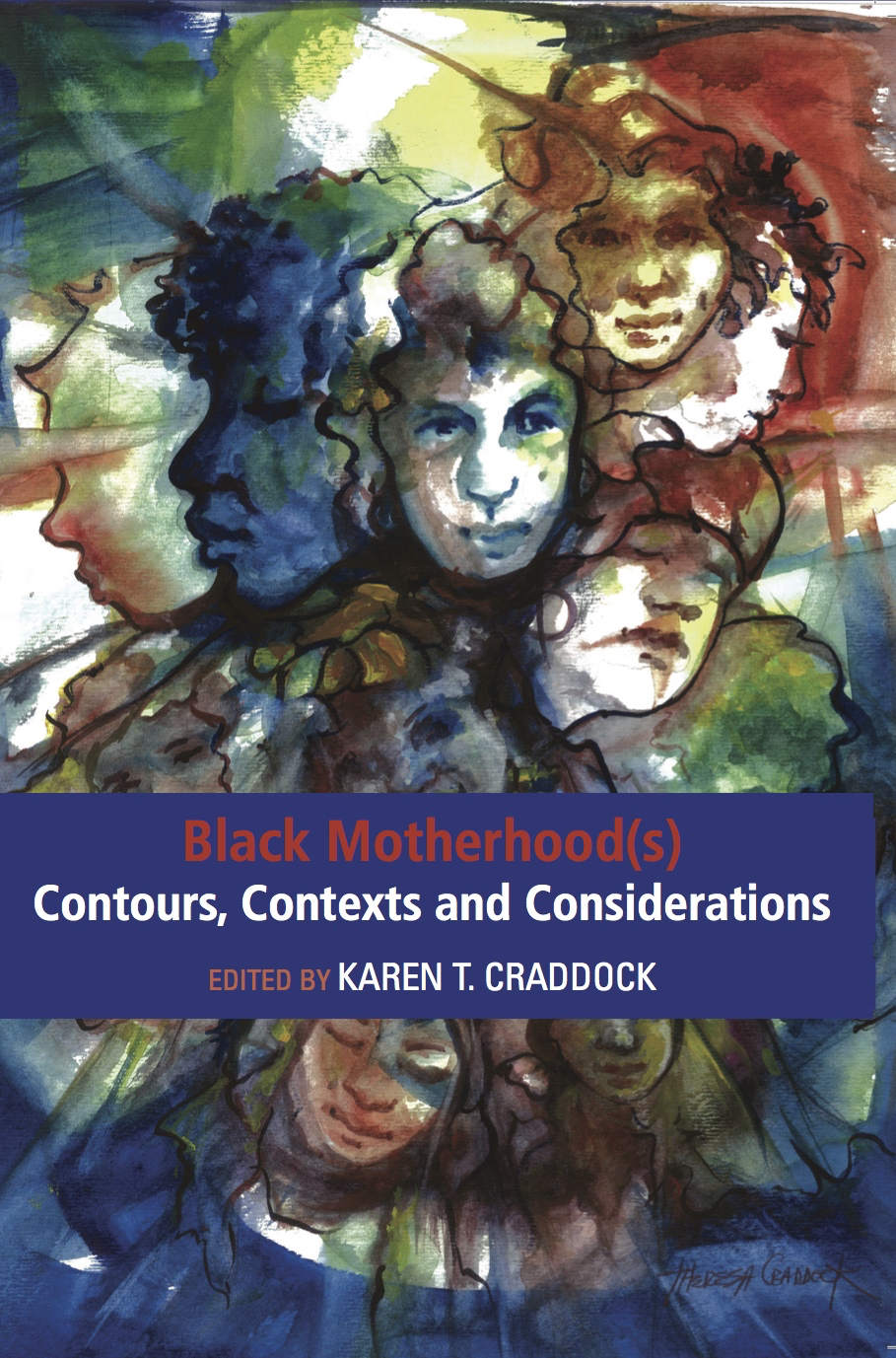
Price: $29.95
Page Count: 230
Publication Date: October 2015
ISBN: 978-1-927335-25-3
“What I like best about this book is the wide variety of adopted approaches to the topic of Black Motherhood. From diasporic fiction, to global mothering, to hairdressing rituals to missionary photos, the authors unpack what it means to be a black woman mothering her children under conditions of unrelenting oppression. Dr. Craddock has pulled together a fascinating multidisciplinary collection of scholars that provides a conceptual framework (‘the contours of black mothers’ hearts, the contexts that black mothers embody and encounter, and the considerations of black mothers’ minds’) to assist the reader in analyzing the ideas put forward in the collection. This is not just for social scientists, not just for scholars in the humanities, not just for health care professionals. There is something in this collection for all of these different audiences.... The insight provided by this edited volume centers on how the authors are able to illustrate the many ways in which black women in the U.S., in Europe, and in Africa meet challenges across time, across situations, in intimate familiar relationships, and in public and in private spaces. That these chapters cross so many different contexts is amazing and extremely important at a time in which black women themselves are increasingly dispersed throughout the world. Of particular attention is the intellectual importance of this work. It will open up the scholarship on motherhood. No longer will black mothers be relegated to addendum status—this work will provide scholars with rich, descriptive social science research, literary criticism, visual analyses and more, which has the potential to round out our understanding of what it means to study, make sense of, and truly contextualize motherhood today.” —Janie Victoria Ward, Ed.D., Professor, Simmons College, author of The Skin We’re In: Teaching our Teens to be Emotionally Strong, Socially Smart and Spiritually Connected.
Table of Contents
Mother Maya
Acknowledgements
Introduction
Karen T. Craddock
NARRATING BLACK MOTHERHOODS:
TELLING BLACK MOTHERS’ LIVES
“Mother’s Voice” – Having Her Say:
Storytelling in Articulating Black Women’s Diaspora Identity
Helen Crump
Pushing Back with Our Souls Intact:
Young Black Mother’s Resistance to Marginalization
Karen T. Craddock
MOTHERLAND MOTHERS: EXPERIENCING
AFRICAN MOTHERHOOD HOME AND ABROAD
Transnational Mothering:
The Meaning of African Immigrant Women’s Lives
Florence Kyomugisha
Motherhood and Empowerment in West Africa:
The Case of Buchi Emecheta
Delphine Fongang
MUSING BLACK MOTHERS:
REFLECTING BLACK MOTHERS IN POETICS AND LITERATURE
Everybody’s Mama Now:
Gloria Naylor’s Mama Day as Discourse
on the Black Mother’s Identity
RaShell Smith-Spears
Re-Envisioning Black Motherhood:
The Performance Poetics of
Gwendolyn Brooks and Lucille Clifton
Celeste Doaks
Mothering, Mothers and the Historic Representations
of Black Motherhood in Fiction
Barbara Chase-Riboud’s Sally Hemings
Lisa Elwood
BODY AND SOUL: INTERPRETING BLACK MOTHERHOOD
IN REPRODUCTION AND RELIGION
Birthing Black Motherhood: A Short History of
How Race Shapes Childbirth as a Rite of Passage
Tyralynn Frazier
Black Motherhood as Metaphor of Christianity
in Missionary Photography
Emilie Gangnat
WHAT WE SAY, HOW WE DO – INTERACTIONS BETWEEN
BLACK MOTHERS AND DAUGHTERS
Black Mothers’ Messages
of Pride to their Adolescent Daughters
Tracy Nichols and Regina McCoy
Getting the Parts Straight:
The Psychology of Hair Combing Interaction Between
African-American Mothers and Daughters
Marva L. Lewis
Closing Thoughts
Mothering the Girls We Were Then: Prose and Promises
Karen T. Craddock with Tracy Robinson-Wood
Contributor Notes
Karen T. Craddock, Ph.D. is an Applied Psychologist and Principal Researcher whose more than 20 year study and practice concentrates on the socio-cultural context of human development, organizational capacity building, relational frameworks, community-based training and program evaluation research, particularly within the fields of Health and Education. Her exploration of psychosocial functioning, maternal/child health, race/gender disparities, violence prevention, social-emotional wellness and neuroscience focuses on creating healthy relationship, effective partnership and network cultivation. Areas of interest extend into constructs of intersectionality, integration of traditional and expressive healing practices, expanding entrepreneurial opportunities and cohesive systems of support especially among and for women and ethnoculturally diverse groups, and particularly within her own African-American and Native-American communities. Dr. Craddock is faculty and lead scholar of Relational-Cultural Theory and Social Action at JBMTI Wellesley Centers for Women where she is investigating the ethno-cultural context and connections between relationship and brain science to inform social justice equity platforms and programs, such as co-developer of the S.T.O.P model – a relational neuroscience frame to understand and counter social pain and exclusion. She is author developer of the Profiles of Resistance to Marginalization an analytical framework examining the impact of societal stressors and varied strategies to resist them. Karen is founder and president of KCollaborative Connections, a relationship-based consultation, training and action research practice informed by collective impact models to provide services across multiple sectors. She is Chief Operating Officer of the Sodina project (The Avielle Foundation) a national storytelling and mapping initiative developing pathways for healing by engaging a diverse network of people who have suffered loss due to violence. Author and instructor of a range of works on topics including adolescent parents in juvenile justice, personal narrative, mothering and mentoring among Black women in the academy and Native American engagement in STEM, she also holds several editorial and advisory roles, including Harvard University Achievement Gap Initiative’s Seeding Success campaign and is chair of the domestic violence advisory for the Wampanoag Women’s Center (Aquinnah) of which she is also an enrolled tribal member. Karen is fueled by her desire to collaboratively build bridges between innovative thinking and creative effective action that support and catalyze sharp awareness, vibrant compassion and healthy networks to enhance and enrich lives across all communities. Dr. Craddock earned her Ed.M. at Harvard University and Ph.D. at Tufts University.


